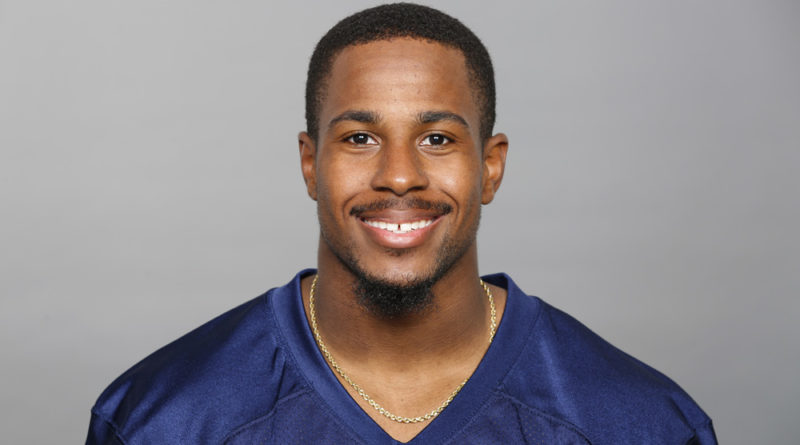Darius Jennings, a Baltimore native and Gilman School alum, signed a deal with the Los Angeles Chargers in March, and he has spent the offseason engaging in activism in his hometown and his future city.
The wide receiver spent most of the last three seasons with the Tennessee Titans after spending time with the Cleveland Browns, Chicago Bears and New York Jets since entering the league in 2015. During his career, Jennings has caught 27 passes for 235 yards.
Jennings recently donated $28,000 in honor of his 28th birthday to support several causes that he feels are important to Baltimore, Los Angeles and society as a whole. The University of Virginia graduate explained on Glenn Clark Radio July 10 that he is particularly passionate about youth education and ex-offender re-entry programs because of the societal issues they address.
This summer has seen protests and conversations about race and social injustice after instances of police brutality toward the Black community. Many athletes have used the vacuum created by the absence of professional sports because of COVID-19 to speak up about social issues and racism in America. Jennings views activism as his responsibility, even when he is busy playing football.
“There’s a big perception that an athlete’s value to society is just what they can do on the court or on the field and in arenas and stadiums,” Jennings said. “Our value to society is as a human being. It’s not right for us to just shut up and dribble or to just be quiet and play a role when the majority of athletes are Black and the majority of owners are white.”
Jennings was signed by the Cleveland Browns as an undrafted free agent in 2015 after a productive four-year career at Virginia (133 catches for 1,667 yards and 11 touchdowns). He signed with the Chargers in March after spending the last three seasons with the Titans.
When Jennings came to Baltimore with the Titans in January, his team knocked the Ravens out of the playoffs and ended Baltimore’s franchise-best 14-2 season — something that Jennings said his family wasn’t completely happy about. Jennings said he heard from family members ahead of the game who were proud of him — but Jennings also allowed that those who showed up to the game wearing purple didn’t get their tickets from him.
Even though Jennings helped end the Ravens’ season in January, that doesn’t mean he doesn’t give back to his native city. Jennings, who earned a scholarship to attend Gilman, said he is fortunate to have had the opportunity to attend a prestigious private school but that children need access to good education in the public school system as well.
“We come from the city of Baltimore where our public school system needs help,” Jennings said. “They’re underfunded. The kids sometimes are out of school because it’s too hot, or they’re sitting in their classrooms with their winter jackets on because there isn’t any heat.”
Jennings supports redirecting some money from police departments in Baltimore and other cities toward education. He also added that people jump to conclusions about what “defunding the police” means.
“The term ‘defund the police’ isn’t saying we don’t want any police. It’s not saying we want to take away the entire police force. It is saying we would like to put that money elsewhere,” Jennings said. “… There’s a history of police brutality against Black people. So, if we can educate our police and educate our children properly, it can kind of break the cycle on both ends.”
As the proposed NFL season gets closer, the league has said that they will support players who use the sport as a platform for protest. Jennings said that he wants to see the league follow through on their comments.
“We don’t want this to just be a one-time thing. Right now, in the climate of the world, it’s easier to say that you’re on board with something because you will get criticized if you haven’t put out a statement,” Jennings said. “It’s nice to hear that they’re open for change, but actions speak louder than words. We kind of want to see the fruition of everything that gets put into place and not just said.”
Jennings hopes his donation will raise awareness and that he’ll be able to help out younger people in Baltimore by supporting the education cause. No matter what, he calls for everyone to realize that the problems with racism in America aren’t just for Black people to worry about.
“There is a saying in sports — you are only as strong as your weakest link,” he said. “… It is time for change. We all have to look at ourselves as a whole. It’s not just a Black person’s problem, it’s a humane problem and it’s our country’s problem.”
For more from Jennings, listen to the full interview here:

